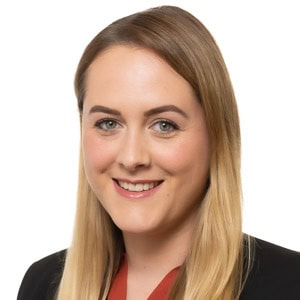
Dependency claims: Who is eligible and what is it?
In a previous blog, I considered the bereavement award in fatal accident claims. In particular, I reviewed the value of the award, who would be eligible and suggested reforms to the award.
This blog also considers fatal accidents, but here I discuss and explain a different type of claim that can be brought when someone has died as a result of negligence – dependency claims.
In this blog, I will consider what dependency is, who can bring a claim, the different types of dependency, their potential value and what you need to do to establish a claim.
What are dependency claims?
When someone has died as a result of another’s negligence, a limited number of people may be eligible to bring a claim for money as a Dependant of the Deceased. The person bringing the dependency claim must have been in some way reasonably reliant on the Deceased for some form of financial support or service. Dependency claims acknowledge that, as a result of the death, these financial needs or other services can no longer be provided by the person who has died and the Dependant has suffered a loss. The court will therefore award compensation based on the particular loss of support the Dependant has suffered.
Who is eligible to claim for dependency?
The Fatal Accidents Act 1976 contains a list of categories setting out who may be eligible to make a dependency claim. They are:
- Spouses, civil partner or former spouses or civil partners of the deceased
- Couples who had been living together in the same household for at least 2 years before the deceased passed away
- Any parent of the deceased or any person the deceased treated as a parent (such as a step-parent)
- Any child or descendant of the deceased
- Where the deceased was married or in a civil partnership, any person the deceased treated as a child or parent in relation to that marriage or civil partnership (such as a step-child)
- Siblings, aunts or uncles of the deceased
While the current criteria may appear broad, there have been a number of cases in the courts where the surviving cohabitee has been denied access to a dependency claim where they have not been living together for the 2 year period. It can be difficult to justify this arbitrary deadline which could have far reaching implications, financial and otherwise, for the surviving partner.
Types of dependency
Dependency claims will generally revolve around two areas – financial dependency and loss of service dependency. Where a financial or service loss has arisen, provided that there is a reasonable expectation that the Dependant would have continued to benefit had the Deceased survived, a dependency claim can be made.
Financial dependency arises in situations where the Dependant is financially worse off than they would have been had the Deceased survived. This would include for example, a civil partner or spouse who may have been financially reliant on their Deceased partner’s income.
Loss of service dependency is where the Deceased performed an act for the benefit of the Dependant, which can no longer be provided for. This could involve situations where the Deceased undertook DIY tasks that in the future would now need to be carried out by a professional, or where the Deceased played a larger than financial role in the family, such as looking after any children.
Value of dependency claims
The value of a dependency claim is determined by its own facts and therefore differs on a case by case basis. There is no upper or lower limit that must be awarded. However, the amount awarded should be proportionate to the loss that the Dependant has suffered. Therefore, evidence of a dependency and the extent of the loss suffered is essential.
A financial dependency claim can be established by considering the earnings the Deceased would have earned, had the accident not occurred. The Deceased’s lost pension, any lost alternative income and savings may also be considered. However, it is not as straightforward as adding these losses together. It needs to be borne in mind that had the Deceased survived, they would have continued to earn and spend money on themselves. Therefore, before any financial dependency award is made, a percentage deduction is made to take this into account.
Loss of service dependency claims can be more difficult to value. Services such as looking after the children and DIY tasks do not have a specific value set against them. While it may not seem important after a fatal accident has occurred, if there is likely to be a dependency claim for loss of service, keeping a list of what the Deceased did for their family and others could be essential evidence when it comes to valuing the dependency claim.
The standard of proof on future losses
Typically, the evidential standard or burden of proof to determine whether a loss has occurred is on the balance of probabilities i.e. the loss was more than 50% likely to occur. However, in the case of AB v KL (2019), when considering future financial dependency, the court held that this was not the correct approach to take.
I will consider this case in more detail in a separate blog, but briefly, the court held that when dealing with hypothetical scenarios, the correct approach is to assess the percentage chance of a future event happening and provide an award subject to that chance. This therefore represents a significant departure from the standard burden of proof position.
Concluding thoughts
Dependency awards arise in situations where someone has sadly died in what should have been an avoidable accident. No amount of compensation will ever put someone back into the position they would have been had their loved one survived. It is however important to be aware of what legal action and recourse a Dependant could have access to.
Our teams at Bolt Burdon Kemp have significant experience in dealing with fatal accidents and dependency claims. Our solicitors know that any claim brought as a result of a fatal accident will be a tragic and stressful time and are here to help and support you during your claim.










